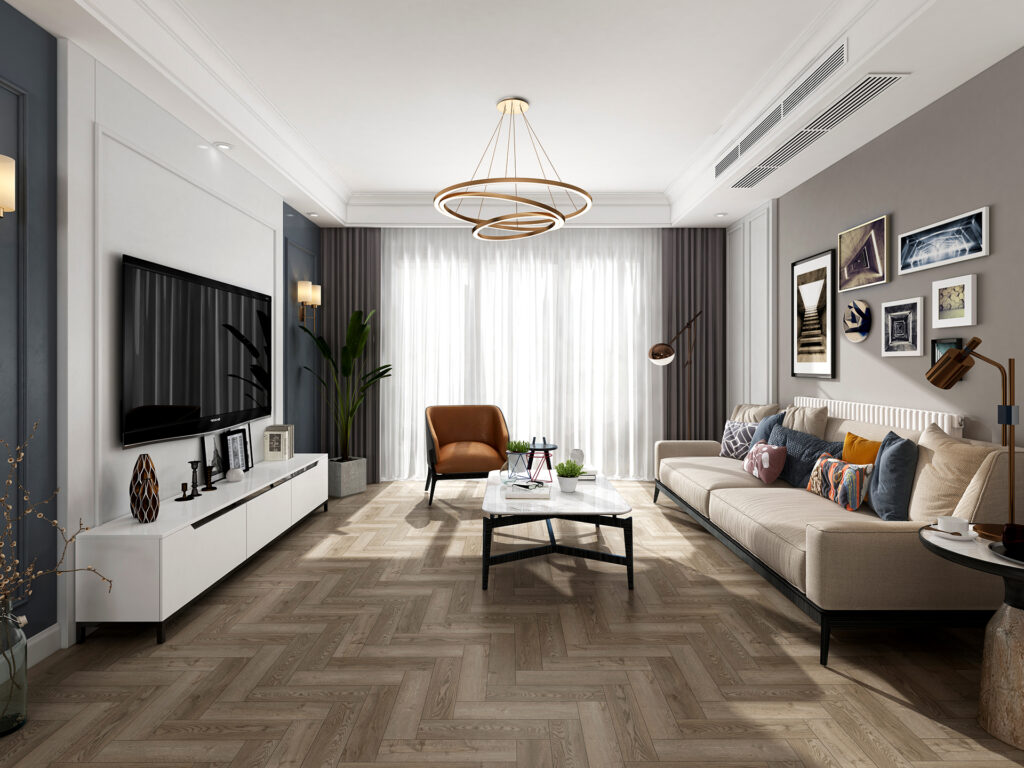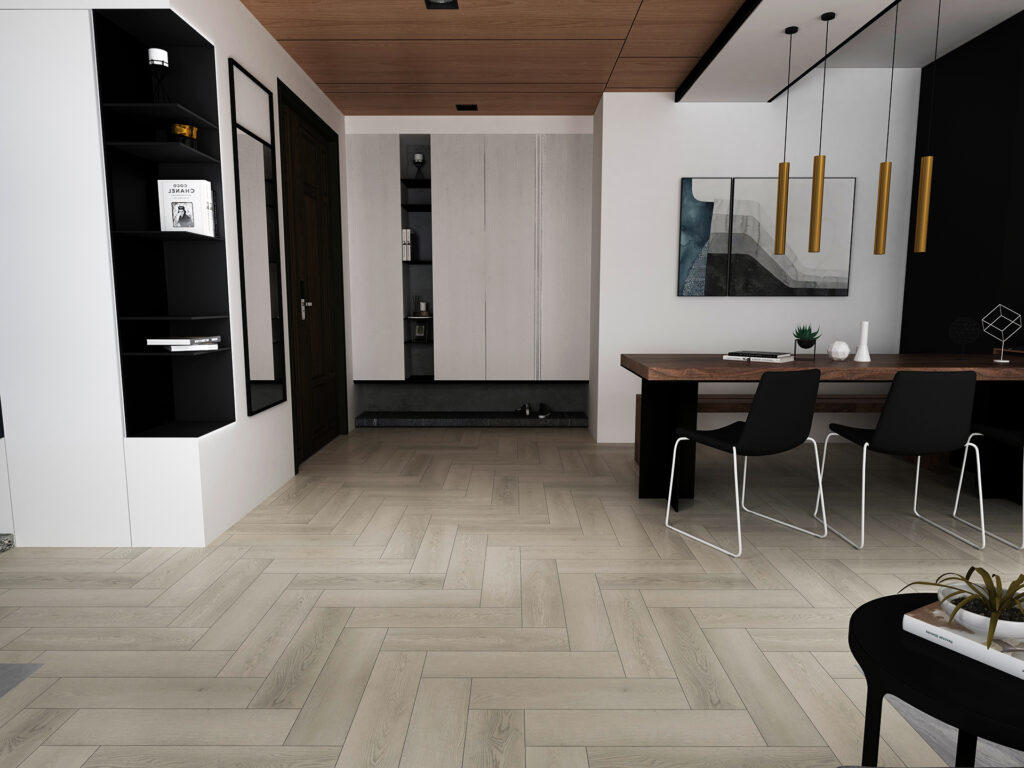Stone Plastic Composite (SPC) flooring, also known as ‘rigid flooring’, is an emerging type of vinyl flooring that combines the appearance of wood with the durability of stone. This new generation of flooring is fast becoming one of the growing choices for people looking for flooring solutions that are stylish, hardwearing, but also easy to install.
There are many reasons why SPC flooring would be chosen among its many popular competitors, so read on to discover more about this exciting flooring option, which may just be the solution you’re looking for.
What is SPC flooring made from?
SPC flooring is made from a core of stone plastic composite, normally limestone and plasticisers. Like other types of flooring, such as LVT, the outer layers are made up of real wood or laminate effect for a ‘real feel’, plus underlay for cushioning underfoot. It also features a coating to make it 100% waterproof, extreme heat resistant and to prevent bleaching in bright areas.

What is the difference between SPC and LVT?
Luxury Vinyl Tiles (LVT) are more widely known by property owners due to their longevity in the market. Although there have been huge advancements in the quality, feel and styles of LVT, the emergence of SPC could see these taking a back step. Here’s why;
Density of planks: There are many differences between SPC and LVT, the main one being the density of the flooring. SPC’s core is far more compact and sturdier due to the core being made from a stone and plastic composite. This small change makes a great difference in the impact resistance, as well as reducing expansion and contraction in changing weather conditions.
Appearance: Faux wooden flooring is now so realistic that it is almost impossible to distinguish from the real thing. LVT is great for homes and businesses, but there are limitations. SPC seems to be suitable for use almost anywhere, including areas of greater moisture, heat and volume of traffic.
Durability: Due to the core components of SPC, it levels up in terms of durability. Although both LVT and SPC are waterproof, SPC offers 100% protection against water damage so can be a popular choice in wet rooms, bathrooms and kitchens. The other advantage is durability. Due to SPC’s thicker and stronger planks, it is less likely to see issues with denting from heavy furniture or footwear.
Effectiveness in extreme temperature: With the hot, dry weather conditions experienced across the globe this summer, it’s important to know what options there are to futureproof buildings against warped floors. SPC outshines LVT flooring in terms of its ability to withstand extreme temperatures, making it the perfect option for kitchens and spas, but also if air con units are needed to be on full time to regulate hotter temperatures.

What types of SPC flooring are there?
Similarly to all other types of flooring, there are different styles, designs, colours and sizes for SPC flooring.
The most common option is SPC planks, which can be laid to provide the effect of real wood flooring, whether this is in straight line patterns or a traditional herringbone.
Click-Lock for easy installation. Similarly to vinyl tiles, these can be much easier to lay than real wood flooring and require minimal equipment, manpower and experience to do well, so are a good choice for a first project.
Embossed-in-Register styles is the process for creating an authentic looking wood grain effect with realistic colour and texture. It is often used in other types of flooring such as laminate - but with the added features that SPC offers, it’s another huge advantage.
Colours and shades to support any decor for any property. Available in oak style, dark mahogany and modern greys, there really is something for everyone’s tastes. The natural effects also mean they can be used in every room of the home, so running the flooring in an open plan house, from living spaces to bathrooms, is now no longer an issue.
If you’re still undecided whether SPC flooring or LVT is more suitable for your needs and budgets, speak to one of our friendly team today who will be able to send you free samples to test in your home, and offer advice for the most suitable product for your property.
